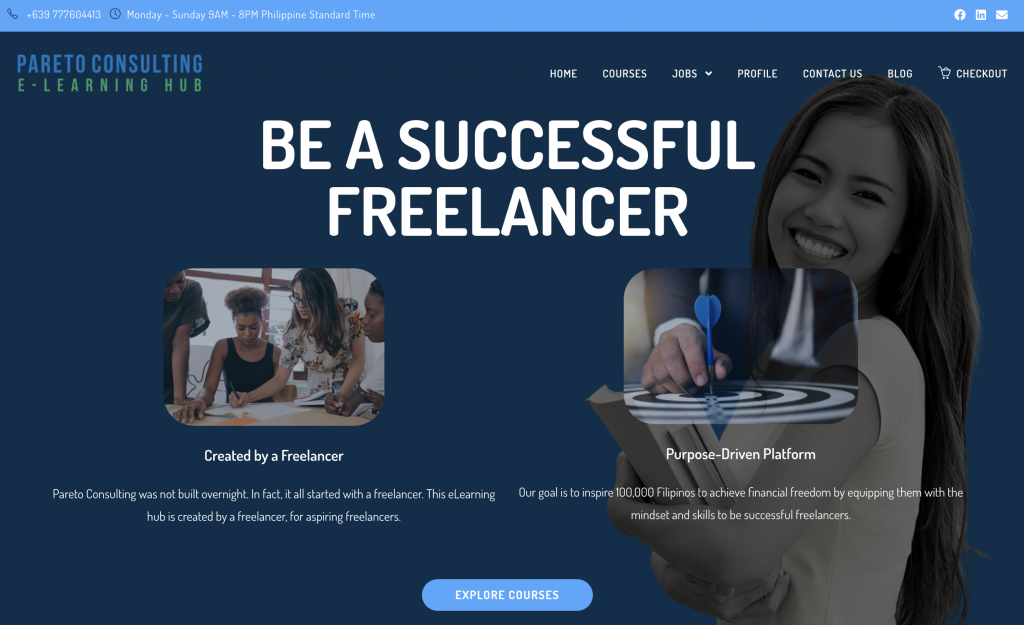
You should not base financial decisions on emotions. It is especially important after a big life change. You should instead consider your needs and the long-term financial fundamentals of the product you are purchasing. Don't make impulsive purchasing decisions based only on headlines or financial predictions.
Financial advisors
Financial advisors provide financial advice to clients. Financial advisors must first be registered and trained. You can do this through a professional qualification program, or by working in the financial sector. These professionals can help you choose the right plans and investments.

While most financial advisors work for large financial institutions, many of them are independent contractors. As investing becomes more popular, and more affordable for many people, financial advisors are expected to be in high demand. Baby boomers are becoming more concerned about retirement investments. They need an advisor who can balance growth and risk.
Friends
Although getting financial advice from friends is a great way to get help, there are risks. First, don't give advice unless you are asked. Different people have different ways and may have different financial knowledge. Although they may be able provide general advice, it is possible that they don't have the relevant experience to give you financial advice. Therefore, you should take the advice that they offer with caution.
Another common problem with unfriendly financial advice is the underlying motive. A parent might be advising an adult child to take conservative risks because they are afraid the child is taking too much risk. It's important to make sure the advice matches your risk profile and your goals, and to ask yourself why you're getting it.
Internet
The Internet is a rich source of financial information. However, there are risks associated with too much information. You have to understand what information is worth your time and what information is not. When surfing the Internet, it's important to be aware of the "buyer-beware" mentality. There is a wide variety of bad advice out there, and you should not rely on anything without a second opinion.

For example, before the Internet, retail investors had to visit their local library to research a company's history. Investors also had to reach out to companies to find the latest information about their stocks. This was tedious and costly in time, as well as costing money in postage. Further, it was also necessary to wait for the reports to be printed.
FAQ
How do I choose a consultant?
There are three major factors you should consider:
-
Experience - How experienced is this consultant? Is she a beginner, intermediate, advanced, expert, or something else? Is her resume a proof of her skills and knowledge?
-
Education – What did the person learn in school? Did he/she continue to take relevant courses after graduation? Can we see evidence of that learning in the way s/he writes?
-
Personality - Do we like this person? Would you want this person to work for you?
-
These questions are used to determine if the candidate is right for us. If you do not have the answer, it is worth interviewing the candidate to find out more.
What skills are necessary for consulting?
A consultant should have strong analytical skills as well as interpersonal skills. This is because you could be asked questions or not know what you are doing. It is important to learn how to quickly solve problems and manage people.
Communication skills are essential. Most clients expect a reply within 24 hours. If they don't hear back from you, they assume you aren't interested. It is important to keep them updated and make sure they fully understand the situation.
How can I become a successful consultant
First, find a subject you're passionate about. You must then build relationships. It is crucial to learn about your clients and understand their needs. And finally, you must deliver results for them.
Although you don't have the ability to do everything perfectly, you must be better than anyone else. You also need to have a passion for what you do. It doesn't suffice to say, "I will be a consultant." You must really believe in yourself and what you're doing.
How do I attract clients to my consultancy business
The first step is to find an area you are passionate about. You could choose anything from public relations to social media, but it should be something you love. You might have to start small, such as by finding niche markets like web design. Once you have found the niche market, you need to understand why it works. What problems does it solve? What problems can it solve? And most importantly, how can you help them?
It is also possible to approach businesses directly.
If all else fails, why not offer your services at free events like networking evenings and conferences? It's a great way to get in touch with potential customers, without spending too much on advertising.
What can I expect of my consultant?
After you have selected your consultant, expect to hear from them within a few business days. They will request information about your company including its mission and goals, products, services, budget, and other pertinent details. Then, they'll send over a proposal outlining the scope of work, estimated time frame, fees, deliverables, milestones, etc.
If everything is in order, then the parties will enter into a written contract. The type of relationship between them (e.g. employer-employee or employer-independent contractor) will determine the terms of the contract.
If all goes according to plan, the consultant will begin working immediately. You will have access both to your documents and internal resources and the consultant's skills and knowledge.
You shouldn't assume, however, that every consultant is an expert in all areas. It takes practice and hard work to become an expert in the field you are consulting. So, don't expect your consultant to know everything about your business.
How long does it take for a consultant to be established?
The length of time required varies depending on your background and industry. Most people start out with a few months before they find work.
Some consultants work for years to perfect their skills, before being hired.
Is it possible to start a consultancy from home?
Absolutely! Many consultants do this already.
Many freelancers work remotely via tools such as Skype, Trello and Basecamp. They often create their own office space so they don't miss out on company perks.
Freelancers might prefer to work in libraries or cafés, rather than traditional offices.
Some people choose to work from their home because they like being close to their children.
While working remotely has its advantages, it also comes with some disadvantages. But if you love your job, it's definitely worth considering.
Statistics
- Over 50% of consultants get their first consulting client through a referral from their network. (consultingsuccess.com)
- Over 62% of consultants were dissatisfied with their former jobs before starting their consulting business. (consultingsuccess.com)
- WHY choose me: Why your ideal client should choose you (ex: 10 years of experience and 6-week program has helped over 20 clients boost their sales by an average of 33% in 6 months). (consultingsuccess.com)
- On average, your program increases the sales team's performance by 33%. (consultingsuccess.com)
- "From there, I told them my rates were going up 25%, this is the new hourly rate, and every single one of them said 'done, fine.' (nerdwallet.com)
External Links
How To
How can I find a good consultant for my business?
The first step in finding a good consultant is understanding what you want from your consultant. Do you want them help improve your website's efficiency? Are you looking for them to help optimize your website to rank higher on search engines? Perhaps you simply need someone to tell you if your current host provider is having issues. You need to know what kind of services you want, and then you can begin looking at other companies. While there are many consultants that claim to be able provide these services for you, not all of them will. How do you select the right consultant for your project? These are some things you should consider when choosing a consultant.
-
Ask for referrals. This is the best way to select a consultant. You shouldn't hire someone you haven’t met before as they will probably charge you too much. You don't want to work alongside someone whose reputation hasn't been established. If you have the good fortune to get referrals from trusted people, great! Even if you don’t have any referrals, you can still look online for reviews. Find testimonials and case study examples from customers who have used your product.
-
Ask around. Many people are unaware that hiring a consultant could make a difference. They believe that because they're doing well, they don’t need to make any changes. This is often not true. Even if you are seeing great results, it is likely that you have not been keeping up to date with technology and trends. And if you're relying on outdated methods, you'll miss out on opportunities to grow your business. It's always worth asking for referrals to find good consultants.
-
Verify their qualifications. It doesn't matter if you are looking for a consultant to help you build a blog or launch a multimillion-dollar eCommerce site, you need to make sure they have the right skills to manage your project. You must ensure they have the necessary skills and qualifications to carry out the tasks.
-
Find out the type of projects they specialize. Although it might seem like everyone can do everything, this is not true. Some areas require specialized training and education. A developer who is a specialist in Drupal would not be able to help you build a WordPress theme. Graphic design and programming languages are all subject to the same rules. It is important to inquire about the types of projects that they work on.
-
You should know their prices. As we said, you don't want to pay too much for a consultant. But you also don't want to pay too little either. Consultants come in many sizes and shapes. While some consultants charge an hourly rate, others bill per project. You will save money if you know exactly what you're going to pay upfront.
-
What do they offer? Are they providing free consultations? Will they give you advice on how to set up your own system? Do they promise that your site will rank higher once you have worked with them? You can cancel the consultation without penalty if your opinion is not what you wanted.
-
Ask if they offer discounts over multiple months or for years. Many consultants offer extended discounts for long periods. It is not necessary to commit to an entire year. However, you could still benefit from any deals offered by the consultants.